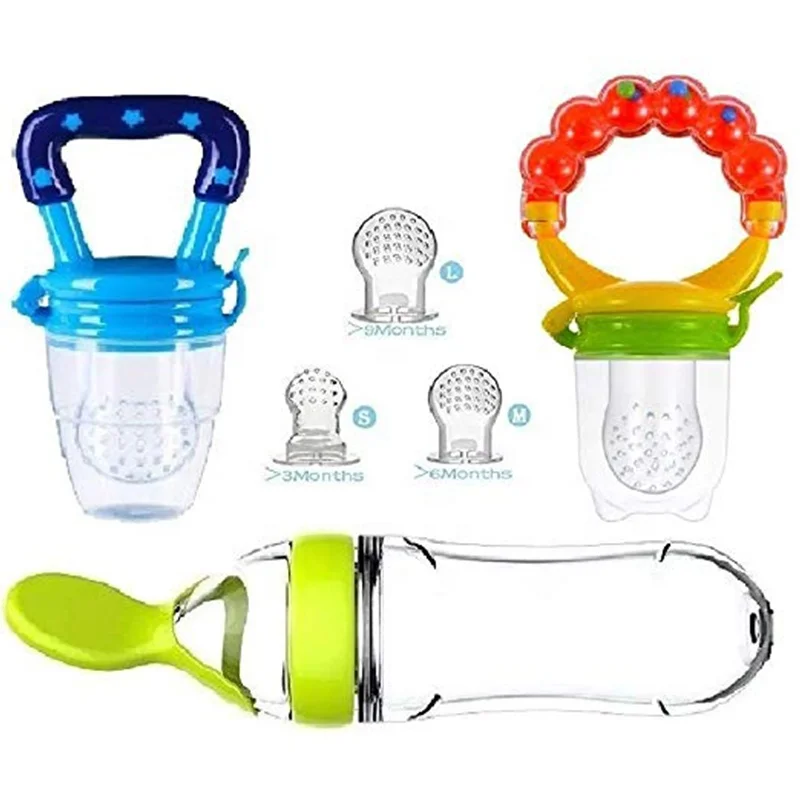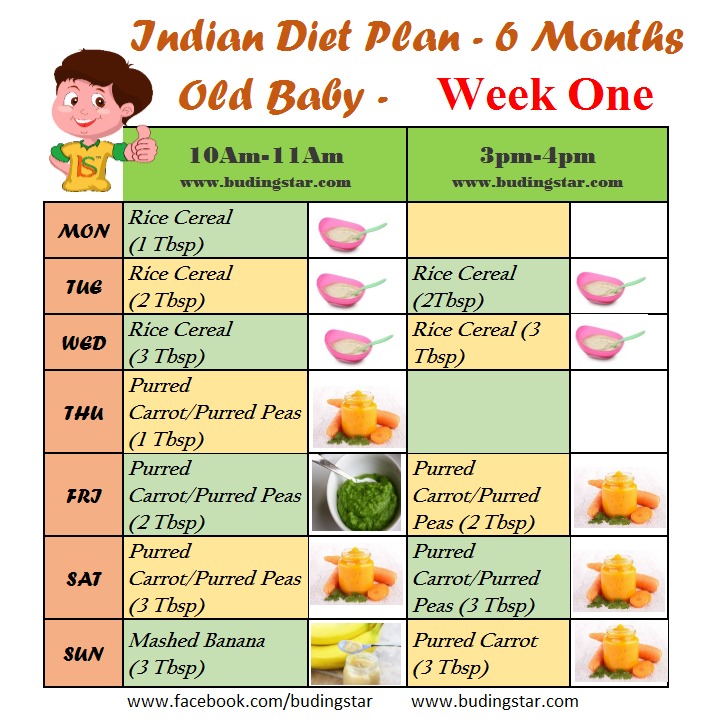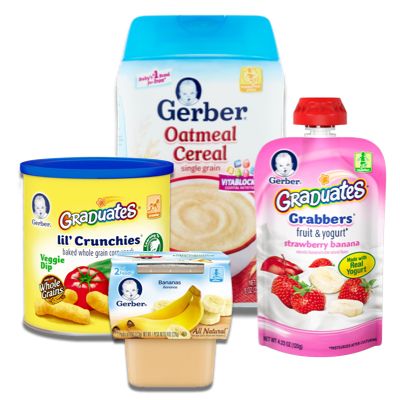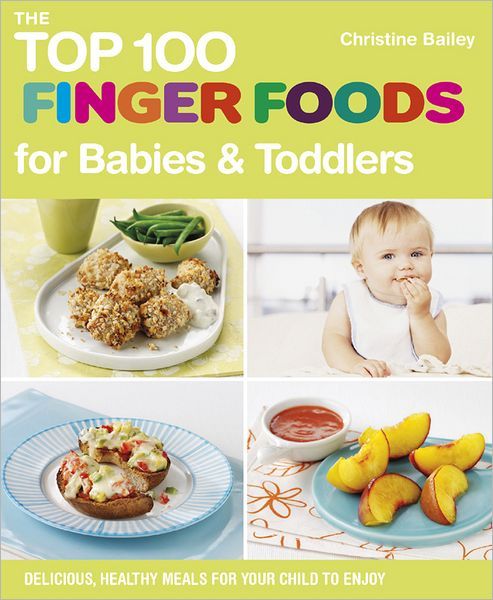Is it possible to feed a baby too much
How To Tell If You're Overfeeding Baby
We spend so much time fussing over whether baby is getting enough formula or breast milk—and for new parents it can be hard to tell what’s actually enough. Many parents may try to coax baby to finish their bottle or worry that baby isn’t eating enough, when really, baby has just had their fill. So can that well-intentioned fussing possibly lead to overfeeding baby?
Keep in mind that signs of a healthy baby may differ across cultures. “Different cultures have different feelings about how much a baby should eat, how often they should eat and what they should look like,” says Alanna Levine, MD, a pediatrician at Orangetown Pediatric Associates in Orangeburg, New York. Some parents consider a roly-poly baby a sign of a job well done, while other parents see a round baby and visualize an obese teen.
While cultural perceptions of a healthy baby may vary, when it comes to feeding, there are few things to keep in mind. Read on to learn how overfeeding baby can happen, signs to look for and what to do going forward.
In this article:
Can you overfeed a baby?
What leads to overfeeding?
Signs of overfeeding baby
How to avoid overfeeding baby
Can You Overfeed a Baby?
You can probably breathe a sigh of relief: Overfeeding baby is almost impossible, and most of the anxiety over babies’ food intake and appearance is pointless. “If baby is gaining weight and growing and your pediatrician isn’t concerned, you don’t need to worry,” Levine says. Different babies grow at different rates and eat different amounts at different times.
Babies come with an incredibly sophisticated self-regulation system: When they’re hungry, they eat, and when they’re full, they stop. (Sadly, we’ve lost this mechanism by the time we become parents.) So when babies turn away from the bottle or breast and refuse to even consider another nip, they’re telling you they’re full. When baby keeps coming back for more, that’s a sign they’re truly hungry (even if they just finished a full six ounces!).
Overfeeding breastfed babies vs. formula-fed babies
Pediatricians Dina DiMaggio, MD, and Anthony F. Porto, MD, MPH, authors of The Pediatrician’s Guide to Feeding Babies and Toddlers, echo the importance of listening to your child’s cue, regardless of whether they’re breastfed or formula-fed. “We are often asked, ‘how come my child didn’t finish their bottle of formula?’ but are rarely asked that when children are breastfed.” (Probably because it’s a lot easier to see—and worry about—how much milk went into a bottle.)
On average, a full-term newborn drinks 2 ounces of formula per bottle every three to four hours, or breastfeeds on demand (about eight to 12 times a day), according to DiMaggio and Porto. At one month old, baby will likely drink 3 to 4 ounces of formula per bottle every three to four hours, while a breastfeeding baby may feed approximately seven or eight times a day. This pattern of baby drinking more ounces of formula or breastfeeding fewer times a day lasts until they are eight to 12 months old, at which point baby may drink seven to eight ounces of formula per bottle or breastfeed three to four times a day.
While these figures will vary with each child, it’s important to remember it’s perfectly normal for baby not to finish their bottle, as long as they’re hydrated and eating enough throughout the day. “Infants have a better understanding of when they’re full and, unlike most adults, don’t just eat whatever serving size is put in front of them,” DiMaggio and Porto say.
What Leads to Overfeeding?
Overfeeding baby is very rare, but it can happen. It’s more common in bottle-fed babies, simply because it’s easier for parents to see how much food their child is consuming. It also takes less effort to drink from a bottle, so babies (who love to suck) may inadvertently get too much milk while feeding.
If you’re concerned about possibly overfeeding baby, talk to your pediatrician. The doctor will look at baby’s length, weight and development, but as long as baby is thriving, they’re probably eating just fine.
Signs of Overfeeding Baby
The good news is, since you’ll likely be visiting a pediatrician often in first few months, you can track baby’s weight gain and feeding patterns. But don’t rely on weight as an indicator of whether you’re overfeeding baby. Instead, spitting up could be a sign you’ve pushed baby to take in extra food—for example, if baby spits up after draining a bottle you kept offering after they turned away. But more often than not, spitting up is a typical infant reaction or reflux.
But don’t rely on weight as an indicator of whether you’re overfeeding baby. Instead, spitting up could be a sign you’ve pushed baby to take in extra food—for example, if baby spits up after draining a bottle you kept offering after they turned away. But more often than not, spitting up is a typical infant reaction or reflux.
If you’re worried baby is eating too much for their age or has symptoms of vomiting, your pediatrician might recommend limiting how many ounces baby is drinking or how many times they feed, DiMaggio and Porto say. In most cases, however, as long as baby is healthy and doing well, feeding changes aren’t necessary.
How to Avoid Overfeeding Baby
If you learn you’ve been overfeeding baby, make a point of respecting your child’s feeding cues going forward. “If baby turns away before the bottle is finished or before your usual nursing time is up, accept the fact that they may not be hungry now,” Levine says. Don’t focus on the numbers: It doesn’t matter how many ounces baby finishes at each feeding.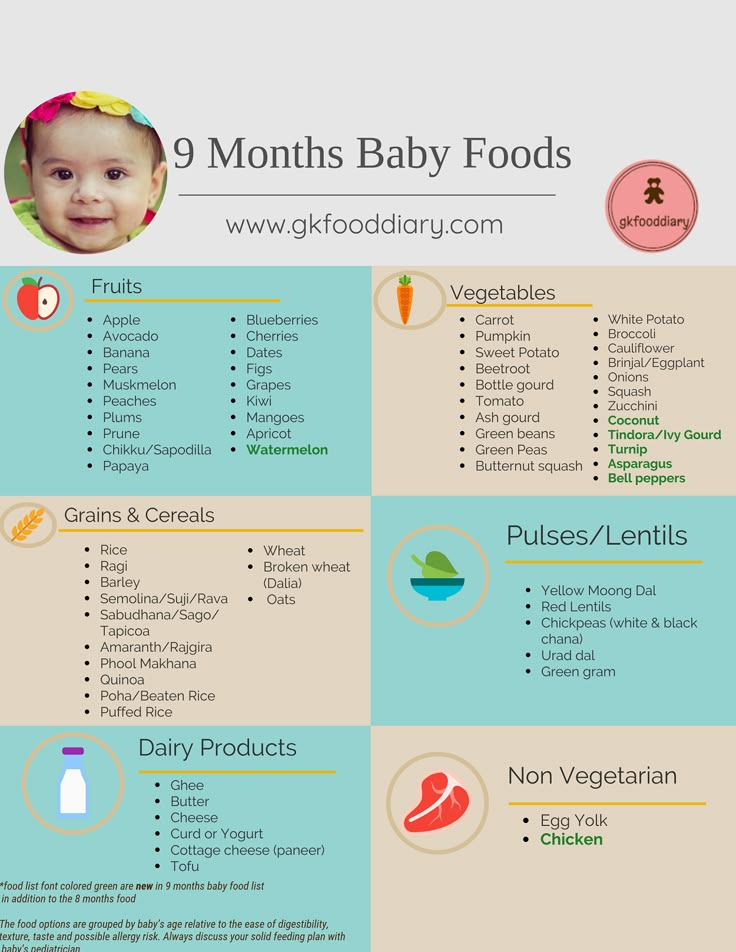 What matters is that baby is healthy and happy overall.
What matters is that baby is healthy and happy overall.
Updated February 2020
Expert bios:
Alanna Levine, MD, is a pediatrician at Orangetown Pediatric Associates in Orangeburg, New York, and works on staff at Englewood Hospital and Medical Center in New Jersey. In addition, she serves as a spokesperson for the American Academy of Pediatrics.
Dina DiMaggio, MD, and Anthony F. Porto, MD, MPH, are co-authors of The Pediatrician’s Guide to Feeding Babies and Toddlers: Practical Answers to Your Questions on Nutrition, Starting Solids, Allergies, Picky Eating and More, as well as spokespeople for the American Academy of Pediatrics. DiMaggio is a clinical assistant professor in the department of pediatrics at NYU Langone in New York City, and Porto is a pediatric gastroenterologist at Yale New Haven Health and medical director of the Yale Pediatric Celiac Program in New Haven, Connecticut.
Please note: The Bump and the materials and information it contains are not intended to, and do not constitute, medical or other health advice or diagnosis and should not be used as such. You should always consult with a qualified physician or health professional about your specific circumstances. Plus, more from The Bump:
Your Ultimate Guide to How to Bottle-Feed a Baby
Breastfeeding 101: How to Breastfeed Baby
What You Need to Know About Baby Growth Spurts
Can a Newborn Eat Too Much? How to Not Overfeed Your Baby
Signs of newborn overeating and ways to give the proper nutrition
By NewFolks
Can you overfeed a newborn? In short, yes, you can, but it doesn’t happen often. Every newborn has differences in appetite where one might drink a bottle or breastfeed longer than the other. Regardless, you can recognize the signs when your child has overeaten. Overfeeding a newborn often causes discomfort to the child because they can’t properly digest all breast milk or formula.
Regardless, you can recognize the signs when your child has overeaten. Overfeeding a newborn often causes discomfort to the child because they can’t properly digest all breast milk or formula.
Contents
- Signs of overfeeding baby on a regular basis
- What causes a newborn to eat too much?
- How to deal with overeating in a newborn
When overeating, the child can also ingest air, which may produce gas, increase abdominal discomfort, or cause crying. A child can even spit more than usual and have a soft stool. Although the discomfort of crying is not colic, they can cry more frequently than a child who already has colic. Therefore, you’ll need to watch for the signs of overfeeding your baby.
These are the signals that will clue you into how hungry (or not) your baby is.
- Holding the breast or bottle and continuously sucking (which indicates hunger)
- Taking longer breaks between sucking (meaning that he or she is full)
- Moving away from the breast or bottle (signaling fullness)
The amount of food each newborn needs will vary, but there are signs that generally show that a baby is gaining enough nutrition, such as a happy demeanor and good muscle tone.
Overeating, however, means that the baby consumes more milk (breast milk or formula) than they need for growth. Getting too much milk can overload a child’s small stomach and consequently get in the way of proper digestion.
Signs of overfeeding baby on a regular basis
Likewise, here are the signs of overfeeding a newborn that you’ll need to be aware of.
- Above-average weight gain
- Frequent, nauseating bowel movements
- Large burping
- Milk regurgitation
- Irritability
- Sleep disturbance
Symptoms associated with overeating are usually mistaken for colic, reflux, allergies, or intolerances to milk protein, or lactose intolerances. What separates the overeating from these conditions is that your child shows healthy growth, which does not happen when he or she has a digestive issue or a food allergy.
What causes a newborn to eat too much?
There are plenty of reasons a newborn overeats which include:
- Sleep deprivation: Lack of sleep disrupts the hormonal balance, which regulates appetite, resulting in increased appetite.

- Development: Babies are at the stage of oral development. In addition to wanting to suck when they are hungry, they also like to suck when they are tired, bored, uncomfortable, frustrated, or simply because they want to.
- Active sucking reflex: Babies have a limited ability to stop when they’ve had enough milk due to the sucking reflex, especially when feeding quickly.
- Fast feeding: This increases the likelihood that a child will ingest more milk than the stomach can contain or more than their tiny digestive system can adequately digest.
- Association of feeding and sleep: A child who falls asleep regularly by sucking a bottle can learn that the way they fall asleep is with a bottle in their mouth. This means that a child may want a bottle not only when they are hungry, but also when they are tired.
- Ignoring the signs of satiety: Satiety means that the child is full. The caregiver may try to force the child to consume the amount in the bottle after the child has shown signs of being full.
 Forced feeding of the baby is easy to implement while the baby’s sucking reflex is active (from birth to 3-4 months), and therefore it is easy to force the baby to take more than necessary.
Forced feeding of the baby is easy to implement while the baby’s sucking reflex is active (from birth to 3-4 months), and therefore it is easy to force the baby to take more than necessary.
How to deal with overeating in a newborn
For starters, it is important not to limit the baby’s milk intake, but to help them to self-regulate. If you happen to overload the baby, don’t stress too much. In the future, you would need to watch for signs of being full. If he or she moves away before the end of the bottle or before the usual time of breastfeeding ends, then your baby is saying that the feeding was enough. If you are concerned about your child overeating, talk to your pediatrician. The doctor will examine the length, weight, and development of the baby and make some recommendations.
Overfeeding a newborn is very rare, but it can happen. It is more common in children who breastfeed, simply because parents can’t exactly determine the quantity that the baby has taken in. However, don’t focus on the amount because the quantity varies with each feeding. After all, you’ll be able to tell if your child is healthy and happy.
However, don’t focus on the amount because the quantity varies with each feeding. After all, you’ll be able to tell if your child is healthy and happy.
Editors' Recommendations
- 5 vegetarian baby food recipes that are easy to make
- Some babies want to be held while sleeping: Here’s why
- 6 of the best toddler cereals to offer your child that aren’t packed with sugar
- When should a baby sleep in their own room? The best time to make the switch
- Real talk: How much wine can you safely drink while pregnant? (We’re surprised)
Too much milk? Reduced lactation
Sometimes you may feel like you are producing too much milk, especially in the first weeks of breastfeeding. After reading our article, you will find out if you really have too much milk, and what can be done to reduce it.
Share this information
Breast milk is very healthy, so it's good to have a lot of it, right? However, this is not always the case. Babies can sometimes have a hard time coping with the rapid rush of milk that usually accompanies excess lactation. And mothers who have too much milk often experience discomfort due to the constant leakage of milk and often suffer from mastitis.
Babies can sometimes have a hard time coping with the rapid rush of milk that usually accompanies excess lactation. And mothers who have too much milk often experience discomfort due to the constant leakage of milk and often suffer from mastitis.
Fortunately, there are a number of ways to help in this situation. But before you use them, answer two important questions:
Do I really have too much milk?
Some of the symptoms of over-lactation (listed below) may occur for very different reasons. You should not try to reduce the production of breast milk, if you are not sure that it is the overabundance of it that is the main problem. Otherwise, this can lead to the fact that your baby will produce less milk than your baby needs, especially in the critical first month when production is just being established.
Is being overweight a problem for me or my baby?
If you are sure that you have an excess of milk, but this does not cause problems for you and your baby, you do not need to do anything. In most cases, everything returns to normal within the first few months. As the baby grows, he will learn to better cope with the rapid flow of milk and will feed with pleasure.
In most cases, everything returns to normal within the first few months. As the baby grows, he will learn to better cope with the rapid flow of milk and will feed with pleasure.
Leakage is not always a sign of too much milk
During the first four to six weeks of your baby's birth, the level of prolactin, the hormone responsible for milk production, will rise each time the breast is emptied. In these first weeks, the breast learns to produce milk in the amount that the baby needs, depending on the time of day. Therefore, excessive leakage, rapid filling of the breast, and even splashing of milk during a rush are the norm. 1
At the same time, your baby is learning to suck and swallow milk, so you shouldn't be surprised if he suddenly coughs or chokes when he suckles.
After about four to six weeks, the spikes in prolactin levels will begin to fade and milk production will become more balanced, adjusting to your baby's needs on a supply and demand basis. 2 However, given the many hormonal changes that occur in the body of a young mother, such a restructuring may take some time. In some mothers, milk production is established quickly, in others a little longer.
2 However, given the many hormonal changes that occur in the body of a young mother, such a restructuring may take some time. In some mothers, milk production is established quickly, in others a little longer.
Behavior of the child, which may indicate an excess of milk
When overproduced, milk is usually released very quickly, especially during the first flush. As a result, the baby may cough or choke at the beginning of a feed, push back, or hold the breast loose in the mouth. The baby may pull away from the chest, frightened by a quick rush, and then cry because he hasn’t eaten. He can swallow milk in large volumes and with a lot of air, and after that he will spit up a lot. Try to be as careful as possible when you help him burp - sudden movements combined with a full tummy can cause the baby to vomit and scare him even more.
At the start of a feed, milk is relatively low in fat and consists mainly of lactose (sugar) and proteins. As the breast is fed and emptied, the fat content constantly increases. In the case of excess milk production, your baby may feel full before he completely empties his breast. This means that he will get a lot of lactose-rich milk, but not enough fat-rich milk that comes towards the end of a feed. Excess lactose instead of a balanced diet can make digestion difficult and cause hard, frothy, and greenish stools.
In the case of excess milk production, your baby may feel full before he completely empties his breast. This means that he will get a lot of lactose-rich milk, but not enough fat-rich milk that comes towards the end of a feed. Excess lactose instead of a balanced diet can make digestion difficult and cause hard, frothy, and greenish stools.
Oddly enough, in such a situation, the baby may constantly want to eat and behave restlessly between feedings. Despite the high calorie content, the low fat content of milk prevents it from being fully satiated. It is the fat contained in food that gives us a feeling of satiety. What happens if you eat a few dozen rice crackers or a slice of cheese with a cookie instead? You will fill up on cheese faster, as it is more saturated with fats.
However, all these symptoms can be caused by completely different problems, such as reflux, allergies, or even vice versa, insufficient milk production. An excess of breast milk can indeed cause these symptoms, but only if they are accompanied by excessive weight gain. Children usually dial around 900 g per month, but in the case of an excess of milk, they can gain much more, often almost twice as much. 1 If you feel like you are having too much milk but your baby is gaining weight normally, contact your lactation consultant or your healthcare provider.
Children usually dial around 900 g per month, but in the case of an excess of milk, they can gain much more, often almost twice as much. 1 If you feel like you are having too much milk but your baby is gaining weight normally, contact your lactation consultant or your healthcare provider.
Symptoms that may indicate an excess of milk in mothers
Mothers with an excess of breast milk often experience swelling and tightness in the breast, which constantly seems full. 3 As already noted, the leakage of breast milk in the first six weeks does not indicate its excess. However, if this continues at every feeding and after this period, it may be that the problem is in the overabundance.
A baby cannot always empty a full breast, so when there is an excess of breast milk, blockage of the milk ducts or periodic bouts of mastitis often occur. However, these problems can also be caused by other reasons.
How to reduce milk production
If you have found that you have too much breastmilk and this is causing you concern, here are a few simple things that can help. For some mothers, they are enough.
For some mothers, they are enough.
- Try feeding in a relaxed position. Reclining or lying down feeding will allow the baby to better control the process. In this position, the baby sets the rhythm of feeding himself and can always raise his head to take a break if the milk is released too quickly. Don't forget to put a towel over to soak up spilled milk.
- Release pressure. If full breasts make you uncomfortable, try expressing some milk by hand or with a breast pump, but try to express as little milk as possible. Every time you empty your breast, you send a signal to her to produce even more milk. Therefore, pumping provides short-term relief, but with prolonged use, it can only aggravate the situation. If you need to express and store milk to feed your baby when you are not around, it is best to address the excess production first.
- Try bra pads. If you have milk leaks, put special pads or pads in your bra to collect milk* to keep your underwear dry.
 If your milk leakage is moderate and already decreasing, or your breasts leak slightly during pregnancy, ultra-thin disposable pads will help you feel confident in any life situation.
If your milk leakage is moderate and already decreasing, or your breasts leak slightly during pregnancy, ultra-thin disposable pads will help you feel confident in any life situation. - Avoid teas and lactation supplements. If you have been drinking teas, eating special biscuits, or taking supplements to improve breast milk production, this should be stopped now to resolve the problem.
"Breast Watch" to reduce milk production
If all the above methods fail, you can try a technique called "Breast Watch", which allows you to better control milk production. However, before trying this method, check with a lactation consultant or healthcare provider.
On breastfeeding, you feed your baby on demand, but only on one breast for four hours. The second breast during this time is strongly filled. Since breast milk contains what is known as a "feedback lactation inhibitor", due to overfullness, the body sends a signal to that breast to slow down milk production. This is a natural way to protect the breast from endless filling.
This is a natural way to protect the breast from endless filling.
This technique must be applied for 24 hours, changing breasts every four hours. If the milk does not become less, try increasing the duration of the "watch" to six hours.
Complete emptying and “breast duty” technique
If after another day there is still a lot of milk produced,
you can try another version of this technique, which is recommended in cases of extreme overabundance. It is called "complete emptying and duty of the breast." 3
In this method, both breasts must be completely emptied in the morning with an electric breast pump and the baby should be fed immediately. The flow of milk will be weaker and allow the baby to eat calmly. In addition, he will receive more fat-rich milk, which comes at the end of feeding, which means he will feel more full.
After that, you can continue the "breast watch" for four hours, as described above. If that doesn't help, try increasing the gap to six, eight, or twelve hours the next day, depending on the extent of the problem. Before using this technique, be sure to consult with your doctor.
Before using this technique, be sure to consult with your doctor.
You may not need to empty your breasts completely after using this technique for the first time, but some mothers have to do this once or twice. Improvement usually occurs within the first two days or a little later, but in no case should "breast watch" be used for more than five days.
Literature
1 Morbacher N. Breastfeeding answers made simple. Amarillo TX , USA : Hale Publishing ; 2010. - Morbacher N., "Simple answers to questions about breastfeeding." Amarillo, Texas, USA: Publishing Hale 0106 et al . Blood and milk prolactin and the rate of milk synthesis in women. Exp Physiol. 1996;81(6):1007-1020. - Cox D.B. et al., Effects of blood and milk prolactin on milk production in women. Exp Physiol. 1996;81(6):1007-1020.
1996;81(6):1007-1020.
3 van Veldhuizen-Staas CG. Overabundant milk supply: an alternative way to intervene by full drainage and block feeding. Int Breastfeed J . 2007;2(1):11. - van Velhusen-Staas SJ, "Milk Overabundance: An Alternative Countermeasure by Total Drying and Blocking of Feeds." Int Brestfeed J (International Journal of Breastfeeding). 2007;2(1):11.
Read instructions before use. Consult a specialist about possible contraindications.
* RC № FZZ 2010/07352 dated 19.07.2010
Beware of overfeeding! - The First Izmailovo Clinic of Dr. Bandurina
Over time, the tasks facing parents change. If earlier their main goal was to find a way to feed the child, today the main thing is the absence of overfeeding and ensuring proper nutrition. This task is difficult, so experts recommend following 7 simple rules.
What's the problem?
A long time ago there was a stereotype that a healthy baby should look like a Cupid, i. e. be plump and have rosy cheeks. This was facilitated by the ancient ideals of beauty, which were formed as a result of the division of society into separate classes. The rich did not deny themselves anything, so the splendor of forms testified to good health and material prosperity. Now things are completely different. Many parents overfeed their children, so they become fat in infancy. Obesity in infants is called paratrophy. She is very dangerous. Experts are sounding the alarm.
e. be plump and have rosy cheeks. This was facilitated by the ancient ideals of beauty, which were formed as a result of the division of society into separate classes. The rich did not deny themselves anything, so the splendor of forms testified to good health and material prosperity. Now things are completely different. Many parents overfeed their children, so they become fat in infancy. Obesity in infants is called paratrophy. She is very dangerous. Experts are sounding the alarm.
Being overweight in babies causes many problems. In particular, the baby's body becomes too loose, the turgor of the main tissues decreases, and swelling appears. Of course, the cheeks in such a situation will indeed be ruddy, but if you look closely at them, you can notice the peeling of the skin. In addition, obese children are more likely to be exposed to inflammation and other diseases. Some illnesses can lead to complications. For example, a common cold can cause swelling in the nasal area, which is not easy to cure.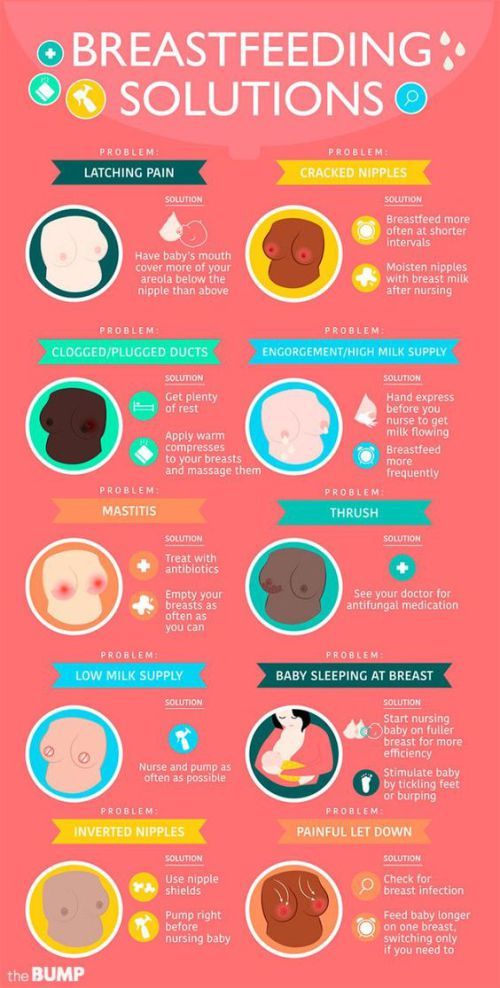
Nutrition without measure
The problem of overfeeding a child is faced by those parents who prefer artificial feeding. All this for the reason that the best food for a baby is mother's milk. Eating them, babies maintain normal body weight and feel great. This is achieved through natural self-regulation. In other words, the baby simply cannot eat more than he needs. Some babies who are exclusively breastfed develop very quickly. This cannot be said about those who absorb milk mixtures in large quantities.
Usually mothers resort to artificial feeding who suffered from high blood pressure and heartburn during pregnancy. Sometimes the problem of overfeeding is solved by itself due to regurgitation, thanks to which the baby painlessly empties his stomach. If the child refuses to spit up, then he receives too many calories, which leads to weight gain.
There are situations when a baby cries incessantly and calms down only when the mother's breast is in his mouth.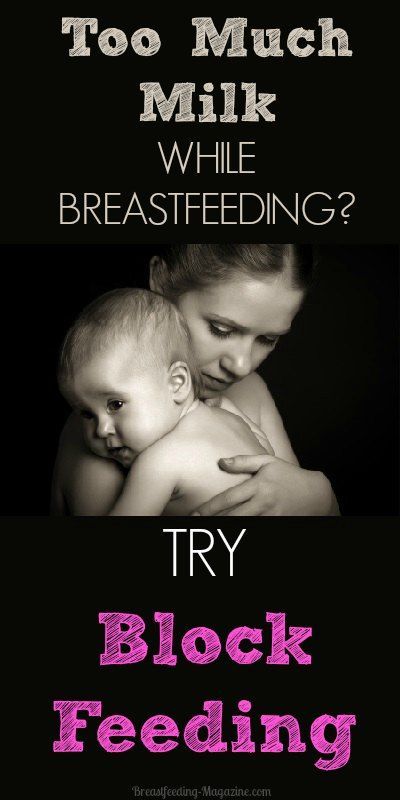 In this case, do not immediately start feeding the baby. It is better to look for factors that could disturb him. The fact is that, being in an irritated state, the baby can calm down only by being next to his mother and enjoying the taste of her milk. As you might guess, overeating causes weight gain, so it’s not worth reassuring the baby every time by giving him a breast. It is better to show the child to the pediatrician.
In this case, do not immediately start feeding the baby. It is better to look for factors that could disturb him. The fact is that, being in an irritated state, the baby can calm down only by being next to his mother and enjoying the taste of her milk. As you might guess, overeating causes weight gain, so it’s not worth reassuring the baby every time by giving him a breast. It is better to show the child to the pediatrician.
Sometimes, due to circumstances, natural feeding of a baby is impossible. In this case, it is necessary to approach the choice of the mixture with all seriousness. It is necessary that the composition of this product has a clear resemblance to mother's milk. In particular, the presence of lactose or milk sugar in the list of ingredients is mandatory.
Rule #1
When choosing formula, remember that it should not be too sweet. In this regard, be sure to pay attention to the level of carbohydrate content. In addition, even if a really high-quality product is chosen, then it must be bred strictly following the instructions.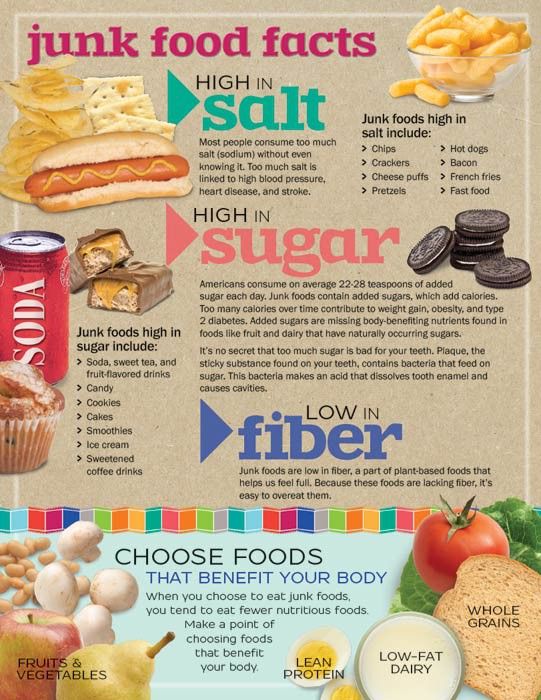
Rule #2
The only way to avoid overfeeding is proper nutrition, i.e. Don't give your baby too much formula. In this case, an important role is played by exactly how much baby food enters the child's stomach. To calculate the daily rate, depending on the age and weight of the baby, you must use a special formula. Next, you need to find out the volume of the mixture per feeding. To do this, divide the previously obtained daily rate by the number of daily meals.
We should not forget about other important nuances. In particular, the appetite of the baby depends on the time of day. Usually the baby willingly eats in the morning, so at the beginning of the day he can be given a little more formula. If the baby ate less than the norm, but at the same time began to walk happily and expresses his desire to play, then he ate. In such a situation, offering him a bottle once again is not worth it.
Rule #3
It's simple: the nipple must fit correctly. Checking this is easy: you need to turn the bottle upside down and see exactly how the mixture flows out. If it flows in a trickle, then the likelihood of overfeeding increases. A good nipple should be such that the contents of the bottle drip steadily.
If it flows in a trickle, then the likelihood of overfeeding increases. A good nipple should be such that the contents of the bottle drip steadily.
Based on the above information, it is clear that if the formula, nipple and diet are chosen correctly, then the baby is unlikely to face the problem of overfeeding. He will eat about the same as a breastfed baby.
The first 3 points are the most important. In this regard, experts recommend that all mothers who are afraid of the development of paratrophy, but at the same time are forced to feed their children with milk formula, adhere to these rules.
Rule #4
Remember: there is no need to hurry with the introduction of complementary foods! Experienced pediatricians advise starting it only when the baby's age exceeds 6-8 months.
Almost all milk formulas have balanced compositions, so they differ little from mother's milk and are rich in nutrients. If the baby eats such a product and has no problems with being overweight, then everything is in order. By about 5 months of age, a child will usually consume about a liter of formula, which is enough even after reaching the age of one. It must be borne in mind that the baby is inactive, so he has nowhere to put his energy. For this reason, cereals and mashed potatoes can be included in the child's diet, but care should be taken.
By about 5 months of age, a child will usually consume about a liter of formula, which is enough even after reaching the age of one. It must be borne in mind that the baby is inactive, so he has nowhere to put his energy. For this reason, cereals and mashed potatoes can be included in the child's diet, but care should be taken.
The need for the introduction of complementary foods occurs when the baby becomes more active. As a rule, this happens at the age of 6-7 months. At this time, the child should be given cereals, and mashed potatoes, and milk formula. So his body will be provided with the necessary amount of energy and all useful substances. It is not worth focusing on a sweet and high-calorie mixture. If there is too much of it, then the beloved child can easily turn into a little fat man. Nutrition should be as balanced as possible!
Thus, it is not difficult to conclude that complementary foods do not have as many benefits as it might seem. This is due to the fact that both infant formula and mother's milk are similar in their beneficial properties.
Rule #5
Infant nutrition experts advise that complementary foods should be kept within the normal range. It is important!
Some parents see no problem with their child eating 100 grams more vegetable puree. In such a situation, it is necessary to take into account not only that the baby ate a lot, but whether he really wanted to eat so much. For a child, all food is a source of energy, which then needs to be spent somehow. If the movement is not enough, then this, coupled with overfeeding, will lead to weight gain.
Sometimes young mothers make a serious mistake by replacing mixtures with cereals and mashed potatoes. This leads to the fact that their children put on weight, they begin to develop paratrophy. In some cases, the emphasis is on quantity rather than quality. Parents, realizing that along with cereals and mashed potatoes, their child receives a minimum of useful substances, they begin to give him curds, meat products and eggs. This is dangerous, because protein overfeeding can develop. In this case, the child suffers from bloating, constipation and has problems with stool. It is not difficult to solve this problem: you should reduce the amount of foods that are rich in protein in the baby's diet.
In this case, the child suffers from bloating, constipation and has problems with stool. It is not difficult to solve this problem: you should reduce the amount of foods that are rich in protein in the baby's diet.
Rule #6
Remember not to show your displeasure when the child does not eat all the food offered to him. Small children only at first glance seem naive. In fact, they are very smart. A kid who notices that his mother is upset when she sees the rest of vegetable puree or porridge on a plate will quickly begin to manipulate her. In addition, the expression of indignation by one of the parents can lead to serious problems in the future. For example, an unreasonable fear for the health of the baby will develop or an incorrect attitude to food will be formed, because. its real value will be significantly overestimated, which can cause overfeeding.
Rule #7
No need to insist! A young mother should be able to distinguish really important things from trifles. When a child eats, nothing should distract him, whether it is an accidentally barking dog or an older brother who has come home from school. In addition, if the baby is already full and this can be seen from his behavior, then you should not forcibly stuff food into him. Of course, if you try hard, then a few tablespoons of porridge or mashed potatoes will definitely fit into your beloved child, but there is no point in this. Of course, the mother will demonstrate to the child that she has power over him, but overeating can cause paratrophy. Over time, it will disappear, tissues will return to their normal state, health problems will disappear, but in such a situation, most likely, the wrong attitude to food will be formed. The child will develop a habit of eating a lot, which can last a lifetime. This is hello to the fact that a person will suffer from excess weight, heart disease, high cholesterol, etc.
When a child eats, nothing should distract him, whether it is an accidentally barking dog or an older brother who has come home from school. In addition, if the baby is already full and this can be seen from his behavior, then you should not forcibly stuff food into him. Of course, if you try hard, then a few tablespoons of porridge or mashed potatoes will definitely fit into your beloved child, but there is no point in this. Of course, the mother will demonstrate to the child that she has power over him, but overeating can cause paratrophy. Over time, it will disappear, tissues will return to their normal state, health problems will disappear, but in such a situation, most likely, the wrong attitude to food will be formed. The child will develop a habit of eating a lot, which can last a lifetime. This is hello to the fact that a person will suffer from excess weight, heart disease, high cholesterol, etc.
If a little girl is force-fed during infancy, when she is 9-10 years old, she is likely to face a serious problem in the form of early puberty. This means your child will stop growing and will have incorrect body proportions. Thus, in the matter of baby food, one should not rely on folk wisdom that says that children who eat a lot grow up quickly and become beautiful. Remember that only the child who eats properly can be healthy. It's easy to determine. If your child eats normally and does not put on weight too quickly, which is within the normal range, then everything is in order with him. You should start sounding the alarm in a situation where the baby does not have an increased appetite, but at the same time gets fat. Most likely, he develops some kind of disease. It is urgent to contact a specialist!
This means your child will stop growing and will have incorrect body proportions. Thus, in the matter of baby food, one should not rely on folk wisdom that says that children who eat a lot grow up quickly and become beautiful. Remember that only the child who eats properly can be healthy. It's easy to determine. If your child eats normally and does not put on weight too quickly, which is within the normal range, then everything is in order with him. You should start sounding the alarm in a situation where the baby does not have an increased appetite, but at the same time gets fat. Most likely, he develops some kind of disease. It is urgent to contact a specialist!
General conclusion
The standard of living of modern man is quite high. We do not deny ourselves food and can buy almost any food. In this regard, malnutrition has long lost its relevance. He was replaced by a new problem in the form of overeating, leading to weight gain. People in large quantities consume foods containing so-called "fast carbohydrates". They are rich in chocolate bars, pastries, breakfast cereals, cereals that do not require cooking, etc. If the human diet for the most part consists of them, then this leads to metabolic disorders, loss of protein elasticity and the development of dangerous diseases.
They are rich in chocolate bars, pastries, breakfast cereals, cereals that do not require cooking, etc. If the human diet for the most part consists of them, then this leads to metabolic disorders, loss of protein elasticity and the development of dangerous diseases.
Movement can solve the problem of excess weight, but increased physical activity has long gone out of fashion. People are accustomed to driving cars rather than walking, and most of the household chores for them, in fact, are done by technology. If the amount of food eaten was comparable to physical activity, then everything was in order, but it is not. Many suffer from hypodynamia, but they are not very worried about this. Food is a source of pleasure for them, so often such parents overfeed not only themselves, but also their growing children. Of course, everyone decides how much to eat, but the problem of teenage obesity is a serious concern for specialists, so they are doing everything possible to ensure that it is solved.



